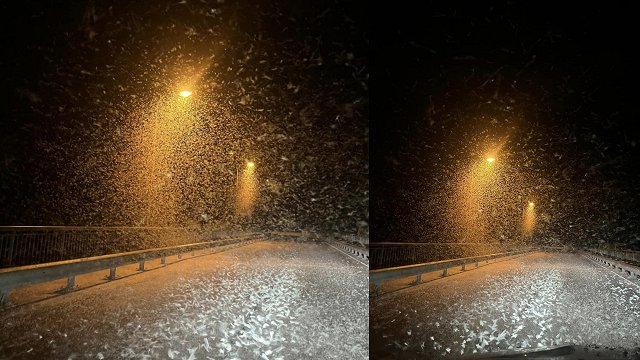“It could be that this is causing further inconvenience, I totally agree, but it's also probably not news for people that the amount of waste in the world is increasing and these rules are being created not to burden us but to save space in landfills,” said Avota.
She added that biological waste is particularly important to sort because it produces gas in landfills that can be collected for electricity.
The spokeswoman for Getliņi explained the process of getting electricity: "Bring the waste, put it in tunnels - you can put 500 tons in one tunnel. When the tunnel is full, close the metal gate, seal, and the process - the waste is laden with a special liquid percolate - is carried out, thus degrading the organics containing methane gas. This fluid shall then be transferred to cylinders where the gas sent to the power unit is separated."
The pile of bio-waste at the Getliņi EKO landfill is currently much smaller than other urban waste mountains, as sorting of bio-waste remains a voluntary option. But from next year, it will be mandatory. Only a quarter of Latvia's population currently sorts, according to a study carried out by Getliņi EKO and market research company Norstat.
Residents of Rīga apartment buildings surveyed by Latvian Television would like to sort this waste, but even in adjacent courtyards situations are different – there are houses with several containers and houses with only a municipal waste container.
In preparation for the change, a dedicated website has been created on the Internet – a navkurmest.lv where every citizen can request the placement of a brown container at their address.
“Riga House Manager” (RNP) said that around 40% of pre-installed brown containers have been removed this summer as residents have asked for it. This means that there are still relatively few voluntary sorters. 1,000 containers of biological waste have been placed outside the RNP buildings, with just 600 left.
The collection of bio-waste is 20% cheaper than municipal, but the public is not motivated enough.
RNP board chairman Māris Ozoliņš said: “First of all, they don't see their value for money. The second reason is that they just don't use those containers, the containers are half empty, but they're taken out by volume. (..) Even once every fortnight, there's no full container. Consequently, they overpay for what they don't do at all. And many don't sort at all. Plus, of course, those smells. If it is so rarely collected, it starts to smell accordingly.”
Taking into account the requirements, Riga has developed amendments to the binding regulations of the local government in order to provide brown containers to all.
Households already dumping biological waste into their compost piles will not be affected by this change.




























